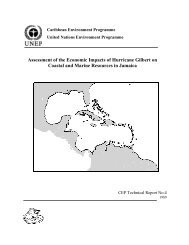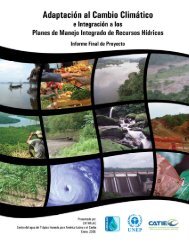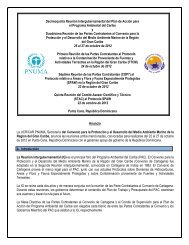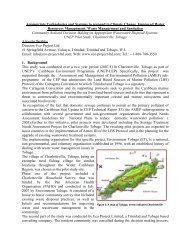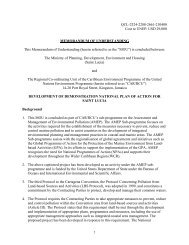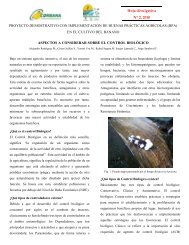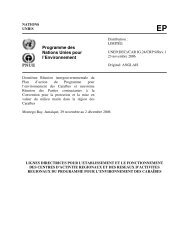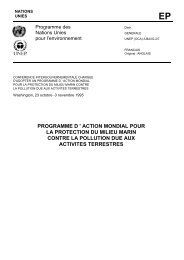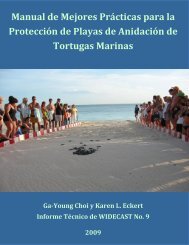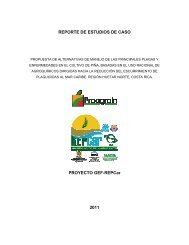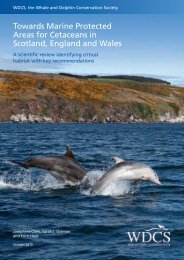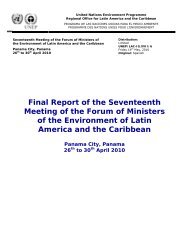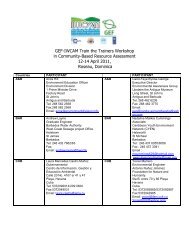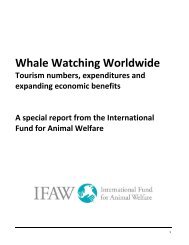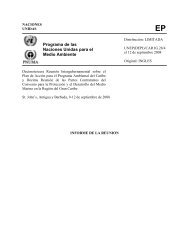Sea Turtle Recovery Action Plan for Barbados - WIDECAST
Sea Turtle Recovery Action Plan for Barbados - WIDECAST
Sea Turtle Recovery Action Plan for Barbados - WIDECAST
Create successful ePaper yourself
Turn your PDF publications into a flip-book with our unique Google optimized e-Paper software.
CEP Technical Report No. 12<br />
4.121 Involve local coastal zone authorities<br />
The Coastal Conservation Project Unit (CCPU) is the agency responsible <strong>for</strong> research and<br />
monitoring of the coastal zone (including beaches and reefs) and acts as an advisory body to the<br />
Town <strong>Plan</strong>ning Department, the Minister of Housing and Lands, and the Ministry of Labour,<br />
Consumer Affairs and the Environment. The CCPU has been advised of the ways in which<br />
coastal development affects sea turtles. They have already contributed useful ideas in<br />
discussions about how conflicts between the needs of sea turtles and the economic and social<br />
development needs of <strong>Barbados</strong> might be resolved. For instance, they have suggested that<br />
endangered nests be relocated to safer beaches or to beach hatcheries, and that beach vegetation<br />
receive similar protection to that given to trees over a certain size under the Trees (Preservation)<br />
Act 1981.<br />
At present the coastal zone is managed and legislation is en<strong>for</strong>ced by several different<br />
agencies. The National Conservation Commission (NCC) is responsible <strong>for</strong> the maintenance of<br />
beaches, and also acts as an advisory body to the Minister of Housing and Lands <strong>for</strong> decisions<br />
pertaining to the construction of beach recreational facilities, and prevention of beach erosion.<br />
NCC personnel include rangers, wardens, life guards and beach cleaners. Rangers and wardens<br />
have powers to arrest persons committing certain offences under the National Conservation Cap.<br />
393. Beginning in 1991, NCC personnel have been incorporated into the programme (sponsored<br />
by Bellairs Research Institute and the Fisheries Division of the Ministry of Agriculture, Food and<br />
Fisheries) that is presently monitoring sea turtle nesting activity (see also section 4.291).<br />
Agency-specific measures recommended in the area of sea turtle conservation are discussed in<br />
section 4.6.<br />
4.122 Develop regulatory guidelines<br />
The following actions are of fundamental importance to the sustained protection of sea<br />
turtle nesting and <strong>for</strong>aging areas: (1) amend and/or rewrite existing coastal zone laws pending<br />
suggestions arising from the institutional strengthening project, increase penalties to act as a<br />
more serious deterrent, and strengthen en<strong>for</strong>cement ef<strong>for</strong>ts.<br />
In addition to these general improvements, more specific regulations will be needed to<br />
protect particularly important <strong>for</strong>aging or nesting areas. When areas are defined as especially<br />
critical to remaining sea turtle populations, regulatory guidelines will be essential in order to<br />
establish a framework within which appropriate land use and development (commercial, residential,<br />
recreational) can occur. For instance, development proximal to important nesting beaches<br />
should be required to design beach front lighting in such a way as to preclude or minimize the<br />
disorientation of hatchlings or nesting adults (section 4.132). Construction of solid jetties and<br />
beach walls, and activities such as sand mining (section 4.131) and dredging should be regulated<br />
in such a way as not to result in the erosion of nesting beach habitat. Similarly, boaters should<br />
be prevented from indiscriminate anchoring in reef or sea grass habitats (section 4.147) and from<br />
discarding refuse at sea (section 4.144). These are, in many cases, common sense measures<br />
which will not only defend important habitat <strong>for</strong> the benefit of endangered and declining sea<br />
turtle populations, but also ensure that sensitive areas are properly safeguarded <strong>for</strong> future<br />
generations of Barbadians.<br />
Page 14



